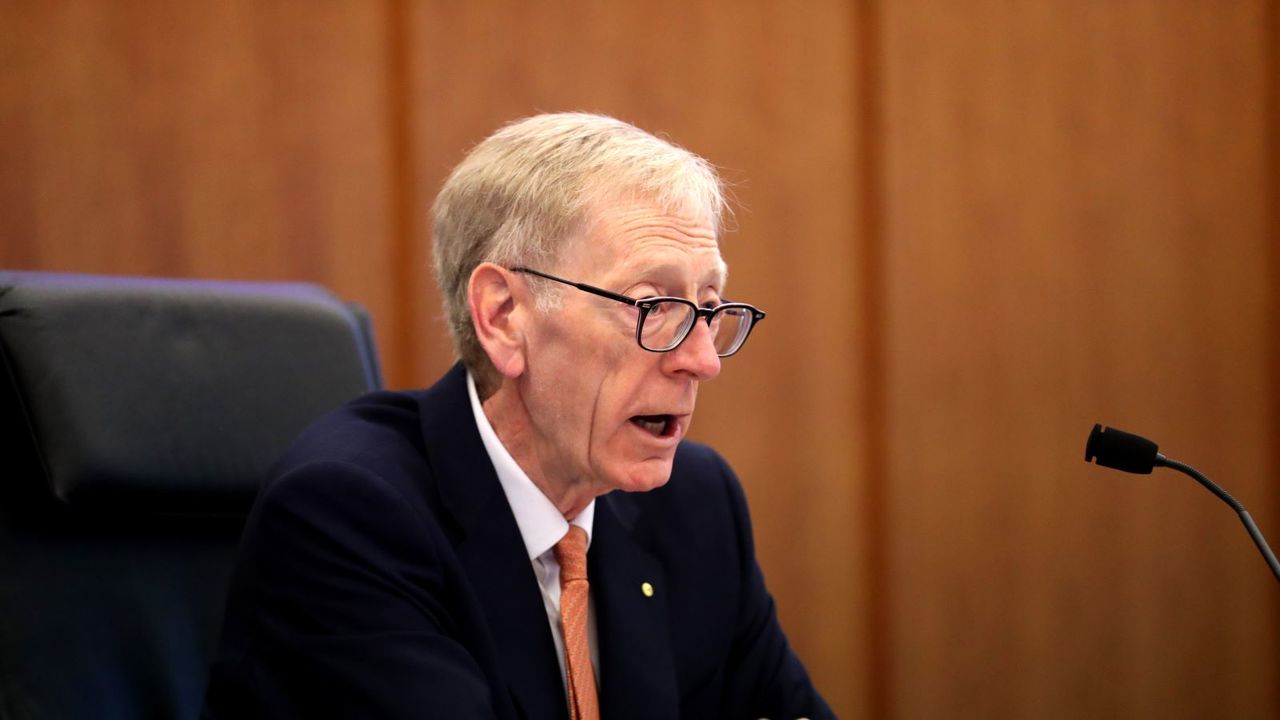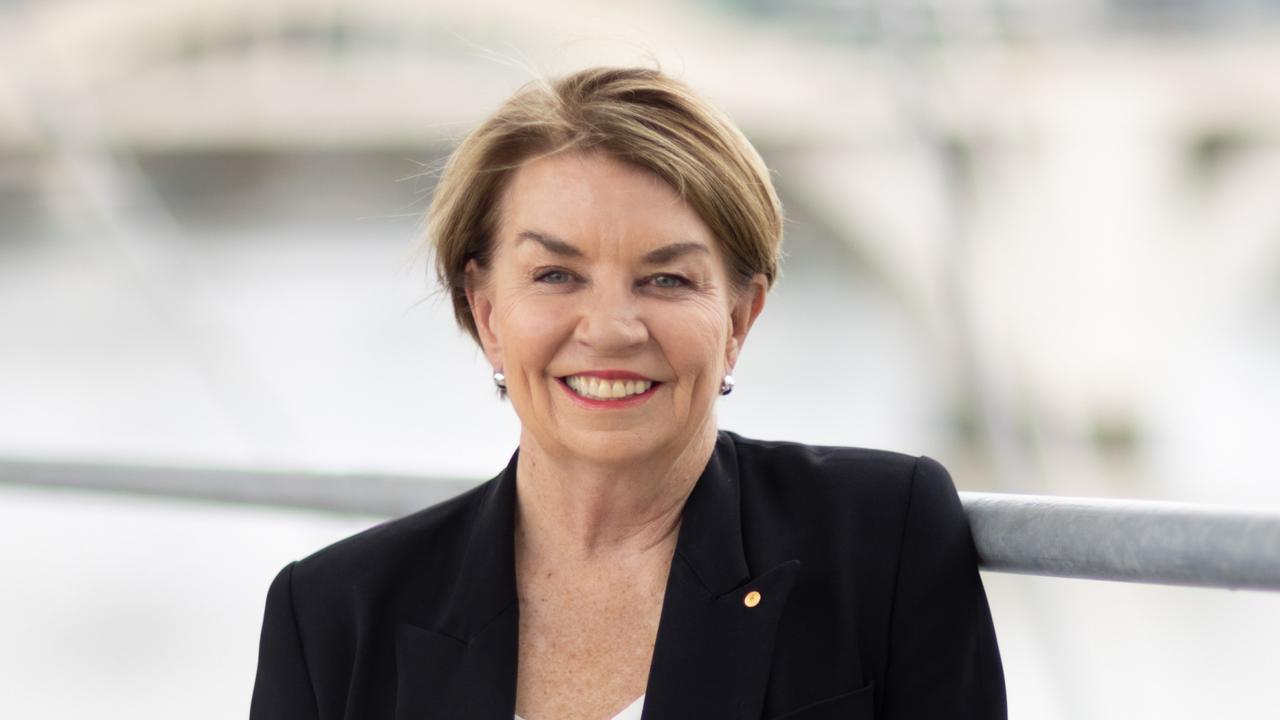Mortgage brokers accused of ‘scaremongering’ over banking inquiry’s commission ban
Mortgage brokers say first homebuyers could be forced to pay thousands of dollars in upfront fees, but critics have slammed the “scare campaign”.

Banking
Don't miss out on the headlines from Banking. Followed categories will be added to My News.
Mortgage brokers have been accused of waging a “scare campaign” after the industry warned the banking inquiry’s sweeping ban on commissions would lead to higher costs for borrowers.
Alan Kirkland, chief executive of consumer group Choice, rubbished claims the changes would lead to higher interest rates or reduced competition, saying it was crucial the government implemented the reforms properly through “strong laws that aren’t watered down by industry lobbying”.
“When you go to a broker it’s because you want advice on how to compare loans and choose the one that’s best for you, but the way the industry is structured at the moment, that’s not what many consumers get,” Mr Kirkland said.
The securities watchdog has noted that loans through mortgage brokers, which make up around 60 per cent of the total, typically involve higher leverage, are more often interest-only and are more likely to slip into default.
“One of the fundamental rules Commissioner Hayne sets for the entire system is to get rid of conflicted remuneration such as commissions, and he effectively says the mortgage broking industry is the biggest priority,” he said.
“The current arrangements create incentives that influence which lender the broker recommends, which loan product they recommend, how much they say you should borrow, and those recommendations often may not be what’s best for you.”
Commissioner Kenneth Hayne QC took aim in particular at “trail commissions”, a form of ongoing payment made by the lender to the broker for the life of the loan, which he described as “money for nothing”.
Trail commissions will be banned from mid-2020 but the government stopped short of accepting Mr Hayne’s recommendation for a ban on upfront commissions as well. Labor says it will act on every recommendation if it wins the upcoming election.
The entire $2.1 billion industry will ultimately be forced to move to a fee-for-service revenue model, where the borrower pays the commission to the broker instead of the bank.
The mortgage industry peak body the Finance Brokers Association of Australia on Monday responded with fury, saying it was a “very, very bad outcome” that would lead to “huge unintended consequences for home loan borrowers”.
“We have seen commissions abolished in other countries like the Netherlands and it has worked well and improved outcomes for consumers there,” said Consumer Action Law Centre policy director Katherine Temple.
“The commission final report called out these kinds of scare tactics and predicted the industry would start claiming that the reform would result in ‘unintended consequences’, so he accurately predicted the response — it’s quite uncanny really.”
Ms Temple said mortgage brokers were “not free”, with an upfront commission of around 0.6 per cent plus trailing commission that consumers ultimately paid for. She argued introducing “real competition and transparency” was more likely to actually reduce rates.
“Since the banning of broker commissions in the Netherlands the broker channel has dropped its market share only slightly compared with the lender direct channel from around 50 per cent to 45 per cent,” she said.
“These doomsday predictions for the industry are overblown and not supported by the evidence.”
‘CUSTOMERS ARE HAPPY WITH BROKERS’
John Manciameli, founder of Sylvania Waters-based mortgage broker Hunterwood Solutions, said the entire 20,000-strong industry was being “penalised for the actions of a few” and warned the change would simply put more power in the hands of the banks.
Investors appeared to agree. Shares in CommBank, NAB, ANZ and Westpac surged on Tuesday as the market cheered the news, while shares in Mortgage Choice plummeted more than 25 per cent.
“Conflicted remuneration with absolute transparency, where the consumer always knows where they stand and how they are benefiting, that is so much better than the market concentration that is about to happen,” Mr Manciameli said.
Moving to an upfront fee-for-service model would simply restrict access to credit for many borrowers, he argued. “What about that first homebuyer struggling to buy a $600,000 apartment in Caringbah? All of a sudden they have to come up with $5000 as well,” he said.
He cited a recent survey of 5800 borrowers that found 96 per cent of mortgage broker customers were happy with their service — but the same percentage said they would not pay an upfront fee of $2000.
Mr Manciameli said the whole industry was now “under a cloud” and faced the prospect of the banks, even without new laws, proactively cutting commissions using the Hayne report as “high moral ground”.
“There are people who are starting to enter the industry, young aspiring mortgage brokers, who have just stopped, they’ve pulled the plug,” he said. “Some other experienced brokers I’m speaking to have stopped hiring.”
Peter Langham, chief executive of finance company Scottish Pacific, which buys outstanding debt owed to companies in exchange for discounted upfront payment, warned the changes could hurt small businesses.
While the focus was on residential mortgage lending, many finance brokers deal “extensively with mum and dads” to secure business funding. “It’s going to hurt consumers, business owners and it’s playing into the hands of the banks,” he said.
“Now the banks have got (the report) to say, ‘We can’t do this because we’re not allowed to.’ They are sitting there going, ‘You beauty.’”
Mr Langham said in 30 years he had “never heard anyone ever say” that they “didn’t have a good experience with a particular finance broker”. “Clearly from the royal commission findings there are a very small number who misbehave,” he said.
Originally published as Mortgage brokers accused of ‘scaremongering’ over banking inquiry’s commission ban



